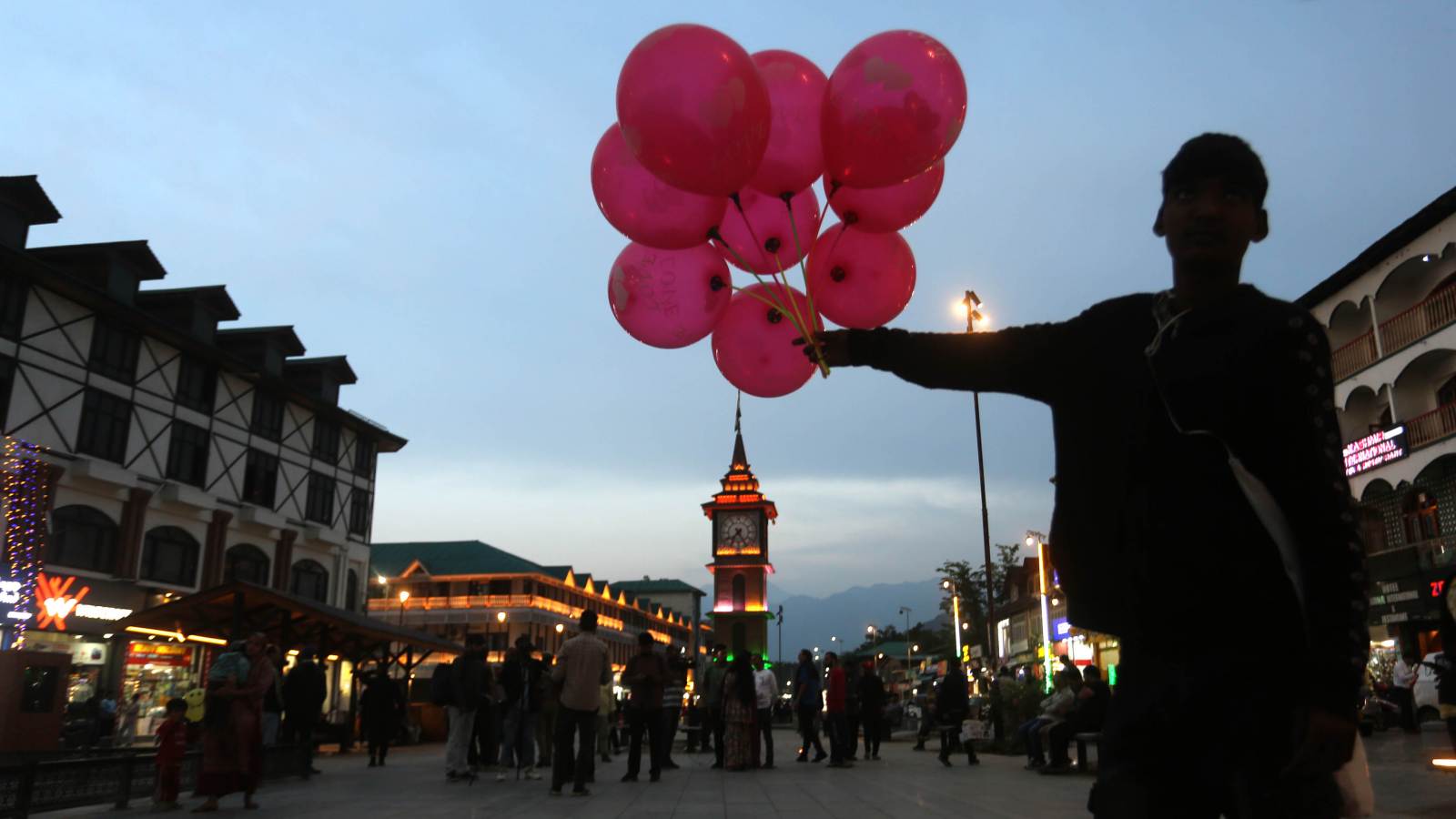Calm returns to frontiers after days of cross-border shelling, drones from Pakistan
Over 20 people were killed and several were wounded in the intense cross-border shelling since May 7.
 After days of gloom and silence, normalcy returns to Srinagar city, following the announcement of ceasefire.
(Express Photo: Shuaib Masoodi)
After days of gloom and silence, normalcy returns to Srinagar city, following the announcement of ceasefire.
(Express Photo: Shuaib Masoodi)All was quiet on India’s northern and western fronts Sunday after days of air sirens and blackouts following firings and drone attacks in Jammu and Kashmir, Punjab, Rajasthan and Gujarat.
From Srinagar and Poonch to Bhuj, it was business as usual a day after India and Pakistan announced end to military action.
In Jammu’s Udhampur, where some cross-border shelling was reported hours even after the ceasefire was announced Saturday, blazing guns fell silent soon after, and the truce held for the remainder of the night. However, there prevailed an uneasy calm, with residents voluntarily keeping their lights switched off at night.
Over 20 people were killed and several were wounded in the intense cross-border shelling since May 7, when India conducted strikes on terrorist sites in Pakistan-occupied Kashmir and Pakistan in the aftermath of the killing of 26 civilians in Pahalgam last month.
In Kashmir, too, peace returned to the border villages Sunday morning after three sleepless nights, with residents along the LoC, who had fled to safer ground, returning to their homes, some of which were damaged in artillery fire. From Uri sector in Baramulla to Nogam and Tangdhar in Kupwara and Gurez in Bandipora, the borders were calm as both Indian and Pakistani troops held their fire.
“We returned to our village last night itself,” Mushtaq Ahmad, a resident of Garkote in Uri, told The Indian Express. “We had left on Thursday after the intense shelling. It has been calm since last night”.
Srinagar too saw a semblance of normality return after the sounds of explosions rang through parts of the Valley Saturday evening. However, after the initial chaos and blackouts Saturday evening, street lights were kept on for the remainder of the night and there were no sounds of siren and explosion — for the first time in three days.
Punjab had a quiet and peaceful night, with most districts lifting the blackout orders issued Saturday evening within a few hours. Although sounds of explosions were heard in Pathankot and Amritsar, a highly-placed official here said these were undetonated explosives being disposed of by the Indian Army, and there was no cause for concern.
By morning, power had been restored in almost all parts of the border state, while it was business as usual in Chandigarh.
A similar situation prevailed in Rajasthan’s Barmer too, where the district administration’s lifting of the red alert meant that people returned to their normal routines.
It was a usual morning in the border areas of Gujarat, with long queues being witnessed at petrol stations, marketplaces, restaurants and eateries.
The marketplace at Bhid Gate — one of the five darwazas, or gates, of the old walled city of Bhuj, which only on Saturday wore a desolate look — surged with large crowds, while grocery shops around the city were teeming with people.
Speaking from the border village of Kuran village, community leader Sarpaji Sodha said “everything was normal” in the village. A drone had been shot down near Khavda on the intervening night of May 7-8.
“I just visited Khavda in the morning. Back at our Kuran village as well, everyone is moving about freely without restriction. There isn’t any anxiety with regards to the conflict,” he said.
Meanwhile, the administrations of border areas continue to remain vigilant, with residents being asked to report anything unusual immediately. The situation will be assessed every moment to decide if the blackout will continue, Jamnagar Collector Ketan Thakker told The Indian Express.
“Things look normal so far. There was a voluntary blackout in the district last night. Also, we have alerted the villagers and our officials along the border to stay alert and report whenever they see anything abnormal,” a senior district official at Kutch told The Indian Express.
—With Brendan Dhabi in Bhuj, Ritu Sharma in Ahmedabad







